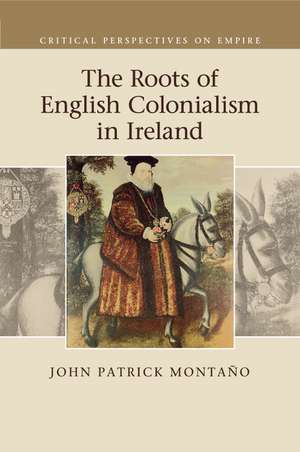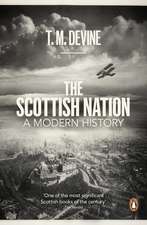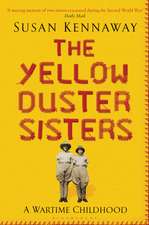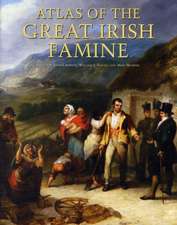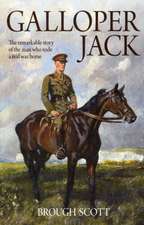The Roots of English Colonialism in Ireland: Critical Perspectives on Empire
Autor John Patrick Montañoen Limba Engleză Paperback – 25 noi 2015
| Toate formatele și edițiile | Preț | Express |
|---|---|---|
| Paperback (1) | 324.79 lei 6-8 săpt. | |
| Cambridge University Press – 25 noi 2015 | 324.79 lei 6-8 săpt. | |
| Hardback (1) | 574.33 lei 6-8 săpt. | |
| Cambridge University Press – 10 aug 2011 | 574.33 lei 6-8 săpt. |
Din seria Critical Perspectives on Empire
-
 Preț: 230.34 lei
Preț: 230.34 lei -
 Preț: 291.69 lei
Preț: 291.69 lei -
 Preț: 259.43 lei
Preț: 259.43 lei - 9%
 Preț: 629.32 lei
Preț: 629.32 lei -
 Preț: 159.35 lei
Preț: 159.35 lei -
 Preț: 235.13 lei
Preț: 235.13 lei - 5%
 Preț: 219.29 lei
Preț: 219.29 lei -
 Preț: 279.30 lei
Preț: 279.30 lei -
 Preț: 299.41 lei
Preț: 299.41 lei -
 Preț: 232.91 lei
Preț: 232.91 lei -
 Preț: 227.65 lei
Preț: 227.65 lei -
 Preț: 261.35 lei
Preț: 261.35 lei -
 Preț: 239.11 lei
Preț: 239.11 lei -
 Preț: 246.91 lei
Preț: 246.91 lei -
 Preț: 286.30 lei
Preț: 286.30 lei -
 Preț: 266.22 lei
Preț: 266.22 lei -
 Preț: 304.19 lei
Preț: 304.19 lei -
 Preț: 195.48 lei
Preț: 195.48 lei -
 Preț: 285.37 lei
Preț: 285.37 lei - 9%
 Preț: 662.85 lei
Preț: 662.85 lei - 11%
 Preț: 584.90 lei
Preț: 584.90 lei -
 Preț: 361.54 lei
Preț: 361.54 lei - 11%
 Preț: 584.57 lei
Preț: 584.57 lei -
 Preț: 321.31 lei
Preț: 321.31 lei - 11%
 Preț: 626.27 lei
Preț: 626.27 lei - 11%
 Preț: 638.42 lei
Preț: 638.42 lei -
 Preț: 222.86 lei
Preț: 222.86 lei -
 Preț: 208.89 lei
Preț: 208.89 lei -
 Preț: 325.16 lei
Preț: 325.16 lei -
 Preț: 286.51 lei
Preț: 286.51 lei -
 Preț: 326.92 lei
Preț: 326.92 lei -
 Preț: 285.54 lei
Preț: 285.54 lei
Preț: 324.79 lei
Nou
Puncte Express: 487
Preț estimativ în valută:
62.16€ • 64.65$ • 51.31£
62.16€ • 64.65$ • 51.31£
Carte tipărită la comandă
Livrare economică 14-28 aprilie
Preluare comenzi: 021 569.72.76
Specificații
ISBN-13: 9781107519589
ISBN-10: 1107519586
Pagini: 442
Ilustrații: 10 b/w illus.
Dimensiuni: 151 x 228 x 23 mm
Greutate: 0.59 kg
Editura: Cambridge University Press
Colecția Cambridge University Press
Seria Critical Perspectives on Empire
Locul publicării:New York, United States
ISBN-10: 1107519586
Pagini: 442
Ilustrații: 10 b/w illus.
Dimensiuni: 151 x 228 x 23 mm
Greutate: 0.59 kg
Editura: Cambridge University Press
Colecția Cambridge University Press
Seria Critical Perspectives on Empire
Locul publicării:New York, United States
Cuprins
Introduction: nature is a language; 1. Planting a landscape: cultivation and reform in Ireland; 2. Planning a landscape I: cultivation as reformation; 3. Planning a landscape II: cultivation through plantation; 4. Inscribing a landscape: maps, surveys and records; 5. Material signs: ordering the built; 6. A civil offer: the failure to adopt English customs; 7. Bad manners, nasty habits: the elimination of Irish customs; Conclusion; Bibliography; Index.
Recenzii
'Anyone interested in Irish history, the Elizabethan period and the origins of modern imperialism … should read this book.' Lisa Bitel, University of Southern California
'Montano offers an arresting, impressive and thought-provoking analysis of the underlying ideology and developing strategy by which the English conquest and colonisation of Ireland was completed in the sixteenth century … a precedent for further colonial adventures in the Atlantic world and beyond.' Thomas Bartlett, University of Aberdeen
'… Montano's elegant and richly-detailed book enhances an already-vibrant historical wall-hanging. Splendid production and polished prose further commend a lively account of English colonial aspirations in Ireland that will be sought out by all in the field and appreciated by anyone interested in a finely-wrought work of history.' Irish Literary Supplement
'John Patrick Montaño's The Roots of English Colonialism in Ireland, like other works in Cambridge [University Press]'s series Critical Perspectives on Empire, aims to produce work that is both cognizant of postcolonial theory and grounded in empirical methodology.' Journal of British Studies
'The book's texts are diverse, which makes it rich; and the presentation of this material within such a disciplined thematic structure is commendable … citing sundry contemporaries and contextualising their commentaries within social and political contexts, Montaño presents a rather interesting explanation for the origins of the early plantation agenda.' Edward Cavanagh, Journal of Colonialism and Colonial History
'Montano offers an arresting, impressive and thought-provoking analysis of the underlying ideology and developing strategy by which the English conquest and colonisation of Ireland was completed in the sixteenth century … a precedent for further colonial adventures in the Atlantic world and beyond.' Thomas Bartlett, University of Aberdeen
'… Montano's elegant and richly-detailed book enhances an already-vibrant historical wall-hanging. Splendid production and polished prose further commend a lively account of English colonial aspirations in Ireland that will be sought out by all in the field and appreciated by anyone interested in a finely-wrought work of history.' Irish Literary Supplement
'John Patrick Montaño's The Roots of English Colonialism in Ireland, like other works in Cambridge [University Press]'s series Critical Perspectives on Empire, aims to produce work that is both cognizant of postcolonial theory and grounded in empirical methodology.' Journal of British Studies
'The book's texts are diverse, which makes it rich; and the presentation of this material within such a disciplined thematic structure is commendable … citing sundry contemporaries and contextualising their commentaries within social and political contexts, Montaño presents a rather interesting explanation for the origins of the early plantation agenda.' Edward Cavanagh, Journal of Colonialism and Colonial History
Notă biografică
Descriere
A major study of the cultural origins of the Tudor plantations in Ireland and of early English imperialism in general.
